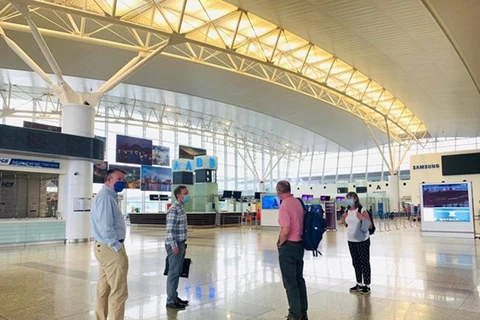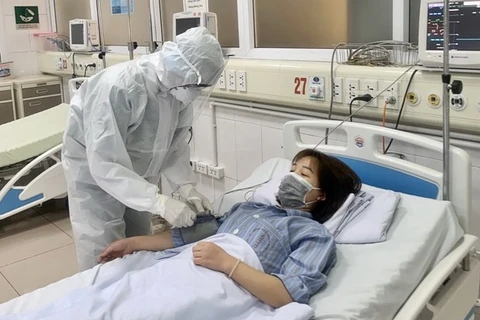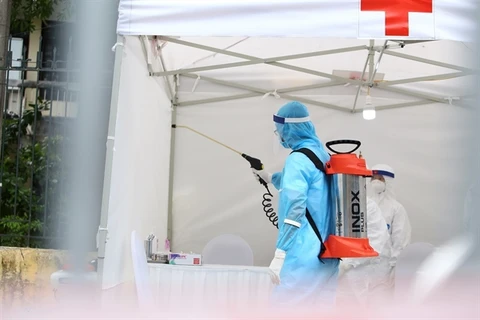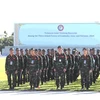Hanoi (VNS/VNA) - The Government Office on late April 3 issued a document detailing the instructions on the implementation of the Prime Minister’s Directive 16 regarding a 14-day nationwide stay-at-home order and social distancing measures starting April 1 to deal with the COVID-19 pandemic.
The directive, which the Government insisted does not constitute a stringent lockdown given that the number of cases in the country remains quite modest, has caused quite a lot of confusion among the public and even local authorities about the scope and intensity of the restrictions to be implemented.
The instruction document noted that “a number of the directive’s contents have not been fully understood and uniformly implemented,” referring to surfacing reports of a number of provinces and cities across the country taking the order a step too far, setting up checkpoints at their gateway and imposing a ban on travel to and from their jurisdiction.
Factories and production units, traffic and construction sites, and organisations supplying essential goods and services – food, medicine, oil and gas, utility, energy, etc. – will still operate normally.
Banks, treasury offices, stock trading floors, and other services directly related to banking activities and businesses – notaries, lawyering, registration, or secured transactions – are also allowed to open. Post offices, logistics services, funeral services and healthcare services can also still operate.
The executives of these organisations are asked to ensure safety and anti-outbreak measures in line with health ministry’s guidelines – compulsory health declarations, limiting travel and face-to-face interactions, halting unnecessary activities and reducing the concentration of workers in limited space, and organising transport to carry workers to and from workplaces.
The document however noted that it’s up to each province and city administration’s discretion to make a list of what services and businesses would need to be temporarily shuttered.
According to the document, people are asked to practise social distancing, stay home and refrain from going outside, unless in case of necessities: buying food, medicine and seeking essential goods and services; health examination and treatment, medical emergencies or disasters; or working in State agencies, diplomatic missions, armed forces, and above-mentioned establishments that are still allowed to open.
Everyone must wear face masks in public and frequently wash their hands with soap or alcoholic sanitisers.
Gatherings of more than two people in public are disallowed and maintenance of a minimum distance of 2m is required.
Public transport is “basically” halted, except in cases of official missions, transporting workers, experts, people subject to quarantine, transporting materials and goods.
Personal vehicles are heavily restricted.
The document also asked for measures in place to ensure “interrupted” movement of goods and materials, and demanded that all localities immediately cease their prohibitions of vehicles and people coming through their jurisdiction.
The leadership of all organisations, units, and businesses are supposed to provide favourable conditions for their workers to work from home within their capacity, avoiding delayed progress especially in urgent matters or public services.
Concerned ministries, agencies and localities shall take “proactive initiative” in adjusting anti-epidemic measures, ensuring compliance with the directive and accompanying instructions; coordinate and address problems arising according to their authority; strictly deal with violations; and promptly report to the Prime Minister on any problems that might arise./.
VNA
























